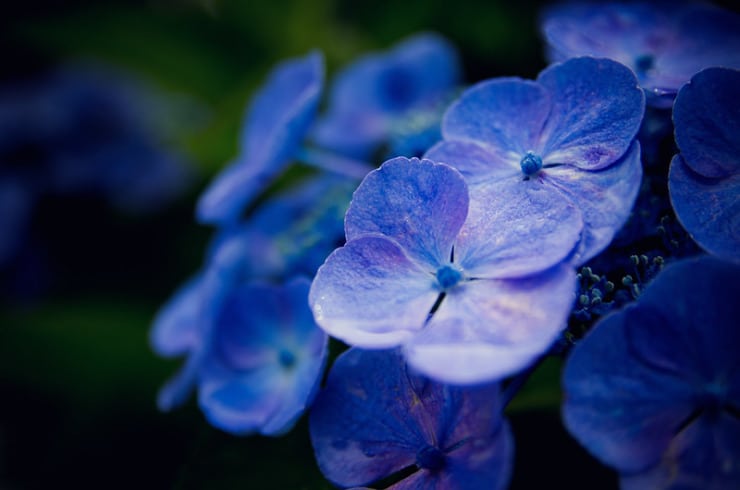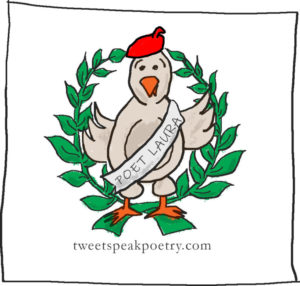There’s a poem bound for Jupiter!
NASA has commissioned the U.S. Poet Laureate Ada Limón to write a poem that expresses the heart and meaning of its upcoming mission to Europa, Jupiter’s second moon. Limón’s work will be etched directly upon the spacecraft as a message from humanity to the cosmos.
What an assignment!
Indeed, on Twitter, she acknowledged it as “the most intimidating and inspiring prompt I have ever received.”
The only other collective message from humanity (of which I’m aware) was sent with NASA’s 1977 Voyager spacecraft, intended to tell extraterrestrials the story of humanity and its home. Rather than a crafted statement, it was a copper phonograph record etched with a curated collection of images, nature sounds, spoken greetings, and music from around the globe—including a Peruvian wedding song, a Japanese shakuhachi melody, and Chuck Berry’s “Johnny B. Goode.”
In 2024, NASA will launch another collective message—Limón’s—on its mission to investigate whether Europa can support life. Due to evidence of a massive 20-kilometer ocean below its icy crust, NASA calls Europa “one of the most promising habitable environments in our solar system beyond earth.”
While I recognize the vital importance of space exploration, something worries me about this particular mission, as well as the missions planned to Mars and back to our own moon. Given our current backdrop of environmental distress and crisis, I can’t help but wonder: have the powers that be given up on our home planet? Are they seeking alternatives?
As I write, I’m looking out on Eagle Creek Reservoir, which abuts a nature reserve and also provides a large portion of the Indianapolis water supply. It’s a weird contradiction—being able to reach out and touch water that I can drink (after filtration, of course) while reading about a 1.8 billion mile mission to chase the same resource.
Nevertheless, I feel that the wonderful Ada Limón is just the poet to manage this contradiction. Well known for exploring the human connection to the natural world, she is sure to balance treasuring what we have on earth with embracing what lies beyond our atmosphere, as she composes our message to the cosmos.
. . . I have
been staring at the tree for a long time now.
I am reminded of the righteousness I had
before the scorch of time. I miss who I was.
I miss who we all were, before we were this: half
alive to the brightening sky . . . .
—Ada Limón from Salvage
The BBC News “In the Studio” program interviewed Limón over the course of her writing her poem for NASA, and she spoke with such regard, such reverence, for our planet, cherishing the water that sustains us here, even as we search for it out there on Europa, our “sister water planet,” as she put it.
While sharing her writing process, Limón stated that she was endeavoring in her poem to “[point] back to . . . the beauty and mystery of the earth itself.” She even wrote the poem while living in a 19-acre palm forest in Hawaii, noting the intriguing juxtaposition of being in a place “so earth-bound and so like a celebration of what the earth can do, and then also thinking about space.”
Limón has recorded her poem at NASA studios, but to date, has revealed only her intriguing first line: “There are still mysteries . . . .” Tonight, she will read her poem aloud at the Library of Congress.
I’m waiting with bated breath!
In the meantime, I’m crafting my own message to send to space—not to Jupiter’s moon, but to our own. My Poet Laura assignment is to advise future travelers to the moon with a poem—but there’s a tongue-in-cheek caveat. Apparently, the poem “will, in perpetuity, be read by no one, but will, in any case, shine down on earth for aeons to come.”
That made me laugh.
As we know, a Poet Laureate’s job is full of meaning and consequence—and representing all of humanity to the rest of the cosmos, à la Limón, certainly fits that bill.
By contrast, Poet Laura’s job is to play.
So, I’m dreaming of my moon poem, tucked into the lunar regolith, with no elements to break it down, where it will wait for a reader who will never come. Even so, I imagine the poem somehow alive and alert, calling back to Earth, because Earth is all it knows and indeed, all that I know.
Ray Bradbury’s gorgeously crafted and breathtakingly brief short story, “All Summer in a Day,” embodies this memory of and longing for our planet. On a recently established colony on Venus (did I mention it’s science fiction?), the schoolchildren are weary of the constant rain, the everlasting gray. But on that particular day, scientists have predicted that the rain will cease and the sun will shine for an hour.
All of them are too young to remember sunshine—and the earth they’ve left behind—except Margot. Margot does remember the warmth and splendor of the sun and makes the mistake of telling her classmates what to expect when the rain ceases. Disaster (for Margot) ensues.
My poem, too, is an endeavor to describe Earth’s magic to those who don’t know it. Perhaps appropriately, since it will be read by no one per Poet Laura rules, the poem is dedicated to the fictional Margot with her memory of the sun warming her face and body, coaxing life from the soil, filling the world with green against a blue sky, making Earth teem, bloom, burst with life in endless varieties.
Seeds
When I cleared the old photos and newspapers, I found a seed packet—Pollinator Garden—at the bottom of my mother’s attic bureau that the Salvation Army wouldn’t take because it’s in such bad shape,
and on a whim I poured those seeds into the soil by the front door, just under the window, and I didn’t even read the instructions before tossing the packet in the trash, and I went about my life without sensing the alchemy occurring—
seeds softening as they drank water and sipped sunshine, boundaries thinning as they allowed the world to enter them and love them, until roots burst from their casings and sprouts pushed through the ground.
Now blossoms brush the sill, setting bees drunk with pleasure till they bump the glass in confusion, and not once have the blossoms admonished look what we did with your little packet of seeds,
and this brought me to tears—the seeds, the blossoms, my mother’s dusty bureau with its dusty packet, my aging body with its aging bones—that life loved us and grew through us, and I never even knew it.
—Dheepa R. Maturi
The moon is Earth’s absolute antithesis, for its starkness, its sheer deadness. Its surface is utterly without organic matter of any kind—no seeds, no bacteria, no microbes. Its air—or lack thereof—offers nothing for our lungs. There is no water, nor fertile soil, nor fire—nothing we need to live.
Amidst that nothingness my poem will sit, forever remembering the miracle of a place where the sun, water, air, and soil fed our mouths, skin, lungs, and cells.
I’m imagining a moon colony like Margot’s Venutian one during the time our planet no longer supports us (hopefully not due to our own actions). I know this is against Poet Laura rules, but I hope that a child in her breathing apparatus will come across a corner of the poem while she’s walking, then brush away the dust and dig it up.
I hope she will read it and marvel that the place she orbits was once so exquisite, that we lived in the lap of paradise and didn’t realize it. I hope that, just for a moment, our Lunarian will feel the kiss of sunshine, the freshness of water, the pulse of soil, the embrace of Earth.
Photo by Hiroyuki Takeda, Creative Commons license via Flickr. Post by Dheepa Maturi.
- Morphing: Lessons from the Year of the Monarch - October 23, 2024
- Year of the Monarch: Butterfly Kisses—A Romantic Comedy - August 7, 2024
- Year of the Monarch: In Sync — a Communal Poem for the Monarch Butterfly - April 11, 2024


L.L. Barkat says
Dheepa…
I am crying.
You took my breath away—with the depth and beauty and tenderness of these thoughts (and your poem). I do believe they should send your poem with Ada’s. Someone needs to call NASA. 😉
Dheepa R. Maturi says
Lol, how kind you are! I just loved writing this post–I am continually amazed by the adventures that my Poet Laura assignments are providing!